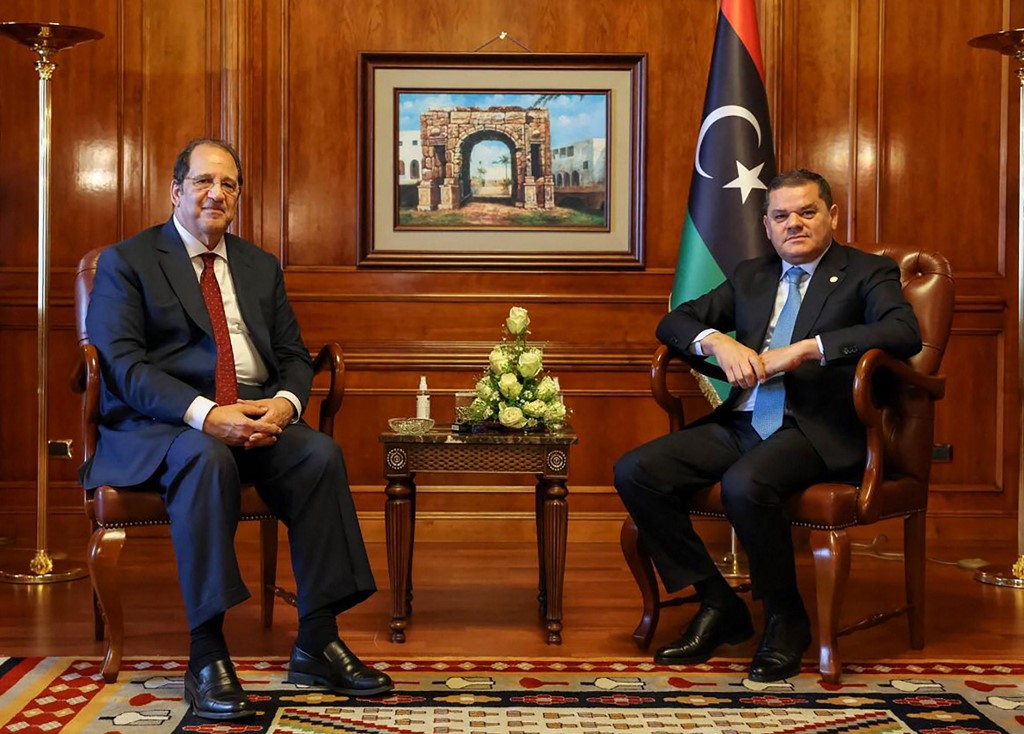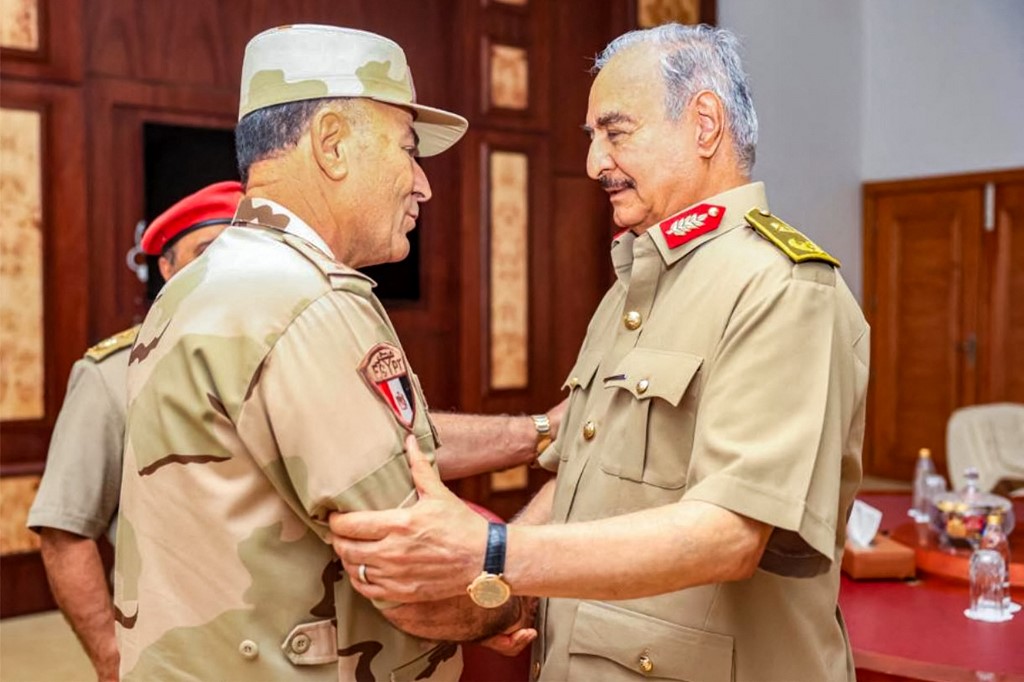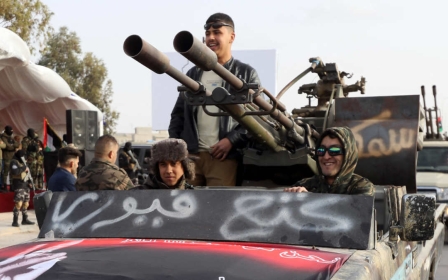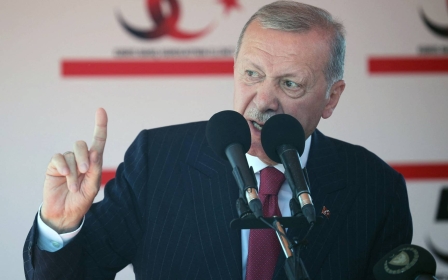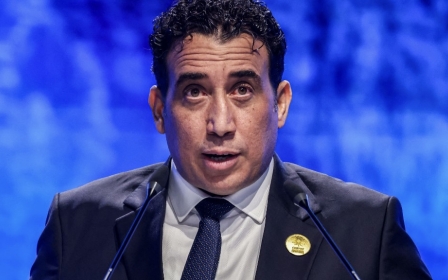Inside Egypt intelligence's plan for a 'Cairo-friendly' Libya government
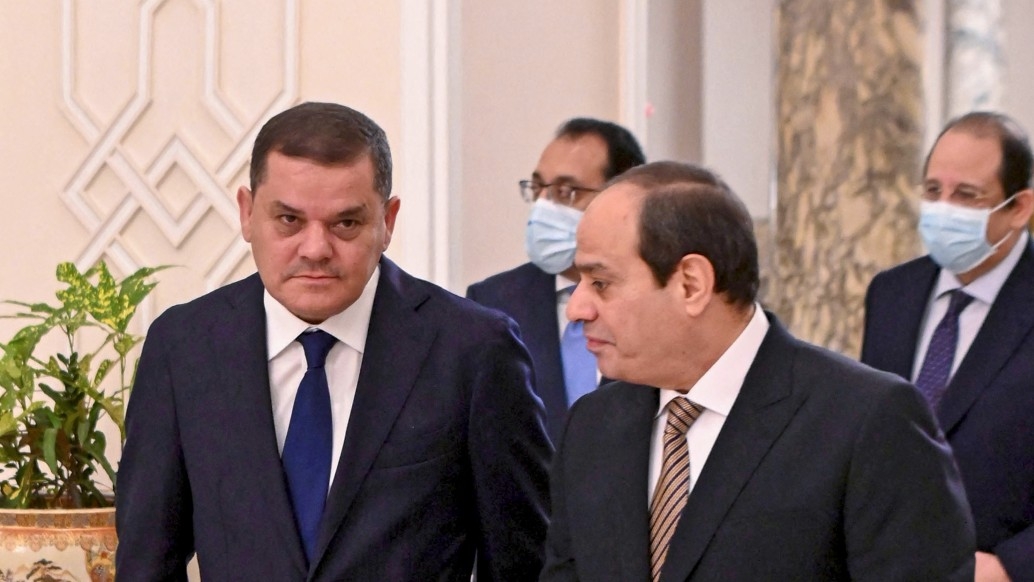
A diplomatic crisis unfolded in August between Egypt and the Tripoli-based internationally recognised government in Libya after two Egyptian diplomats were expelled and declared persona non grata.
A source from Egypt's foreign ministry and another from the General Intelligence Service (GIS) have suggested that the crisis is linked to outreach by Egypt's intelligence chief to the rival Libyan government in the east and discussions held about forming a new national unity government.
For years, Libya has been divided between an internationally recognised government in Tripoli, which controls the country's west, and an administration in the east dominated by eastern commander Khalifa Haftar.
Cairo has close ties to Emirati- and Russian-backed Haftar and the eastern government.
But Egypt's relations with Tripoli have notably improved over the past three years, as Egyptian President Abdel-Fattah el-Sisi's government has gradually expressed support for unifying rival administrations to end instability in its neighbour.
New MEE newsletter: Jerusalem Dispatch
Sign up to get the latest insights and analysis on Israel-Palestine, alongside Turkey Unpacked and other MEE newsletters
The last sign of good Tripoli-Cairo relations was a social media post by Abdul Hamid Dbeibah, the prime minister of Libya's Government of National Unity, who publicly shared two condolence messages from the Egyptian Prime Minister Mostafa Madbouly and the head of the GIS Abbas Kamel following the death of Dbeibah's son.
However, a few days later, on 12 August, the Libyan foreign ministry notified the Egyptian embassy in Tripoli that two of its staff members must leave the country within 72 hours.
Middle East Eye understands that the expulsion of the diplomats was linked to a visit to Benghazi that took place days earlier by Egypt's spy chief Abbas Kamel, who met with Haftar.
According to an Egyptian intelligence source, who spoke with MEE on condition of anonymity, Kamel also held unpublicised meetings during this visit with both Osama Hammad, the prime minister of the eastern government, and Aguila Saleh, the speaker of parliament.
“They discussed forming a unified Libyan government that would control all fronts and regions in Libya, with the stipulation that members of this government would not include any former officials,” the source said, explaining that the suggestion was an Egyptian proposal, but that it was only discussed with the Haftar side.
This is distinct from the UN proposal to form a national unity government, which both sides of the Libyan conflict have yet to implement.
The source indicated that this move angered Dbeibah's government in Tripoli, as it implied an intention to oust him from power.
However, this has not deterred Cairo from extending an official invitation to Hammad for a visit in August during which he met with Madbouly.
This further infuriated Dbeibah's government, prompting it to respond with open hostility towards Cairo.
Counterproductive moves
A senior diplomat in Egypt's foreign ministry expressed surprise at the intelligence chief's actions, which he said unnecessarily strained relations with Dbeibah.
He noted that the ministry was not consulted on this step, taken unilaterally by the GIS, which led to diplomats questioning the reasons behind it.
“However, the GIS provided no direct explanations, only stating their desire to end the current situation and move towards elections in Libya that would bring about a system capable of governing the entire country and would be an ally of Cairo,” the source told MEE.
'The mutual need to maintain a certain level of cooperation between both sides in spite of the mutual lack of trust will drive Egypt to take the initiative to fix the damage caused by meeting Hammad'
- Moataz Khalil, former Egyptian ambassador
The foreign ministry source believes that Kamel's actions were likely driven by the opportunity presented by the regional and international focus on events in Gaza and the tensions between Israel on one side and Hezbollah and Iran on the other.
The source said Kemal likely saw this as an opening to support Haftar, Egypt's chief ally in Libya, against the adversary they had reluctantly dealt with during the previous period: Dbeibah's government.
The intelligence source added that the peculiar aspect of Kamel's move was that it was made independently of the interests and wishes of the United Arab Emirates, the primary backer of Haftar.
The source said that Abbas' move has "angered the UAE", which did not appreciate Egypt acting unilaterally on the issue.
Additionally, relations between Abu Dhabi and Dbeibah have significantly improved recently after he provided substantial assistance to the UAE in gas and oil projects, the source said.
He noted that Dbeibah's government, in a bid to ensure its continuity, offered considerable support to the Abu Dhabi National Oil Company and facilitated its partnership with Total and Eni in the CN-7 field in the Ghadames Basin.
MEE has asked the UAE foreign ministry for comment.
Moataz Ahmed Khalil, former representative of Egypt to the United Nations, said that Cairo has been encouraged to support Haftar because it gets financial, political and military backing from the UAE and Russia, who are very close to the eastern commander.
On the other hand, the formal recognition of the Tripoli government by the UN and the international community has so far prompted Egypt to maintain a balanced relationship with Dbeibah.
Khalil told MEE that despite Cairo believing Tripoli's response to Kamel's trip was exaggerated, "it is expected that the mutual need to maintain a certain level of cooperation between both sides in spite of the mutual lack of trust will drive Egypt to take the initiative to fix the damage caused by meeting Hammad”.
“The government in Tripoli is probably waiting for such a move to respond positively and restore the status quo ante as soon as possible,” he added.
MEE has asked the Libyan and Egyptian foreign ministries for comment.
Middle East Eye delivers independent and unrivalled coverage and analysis of the Middle East, North Africa and beyond. To learn more about republishing this content and the associated fees, please fill out this form. More about MEE can be found here.


